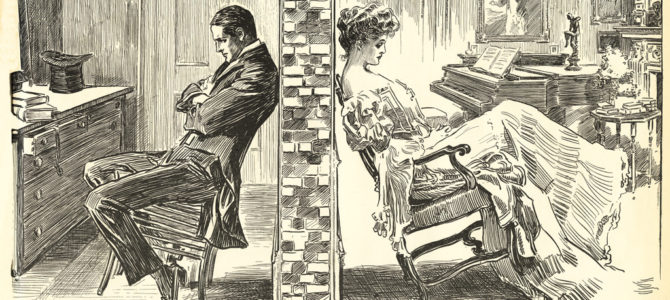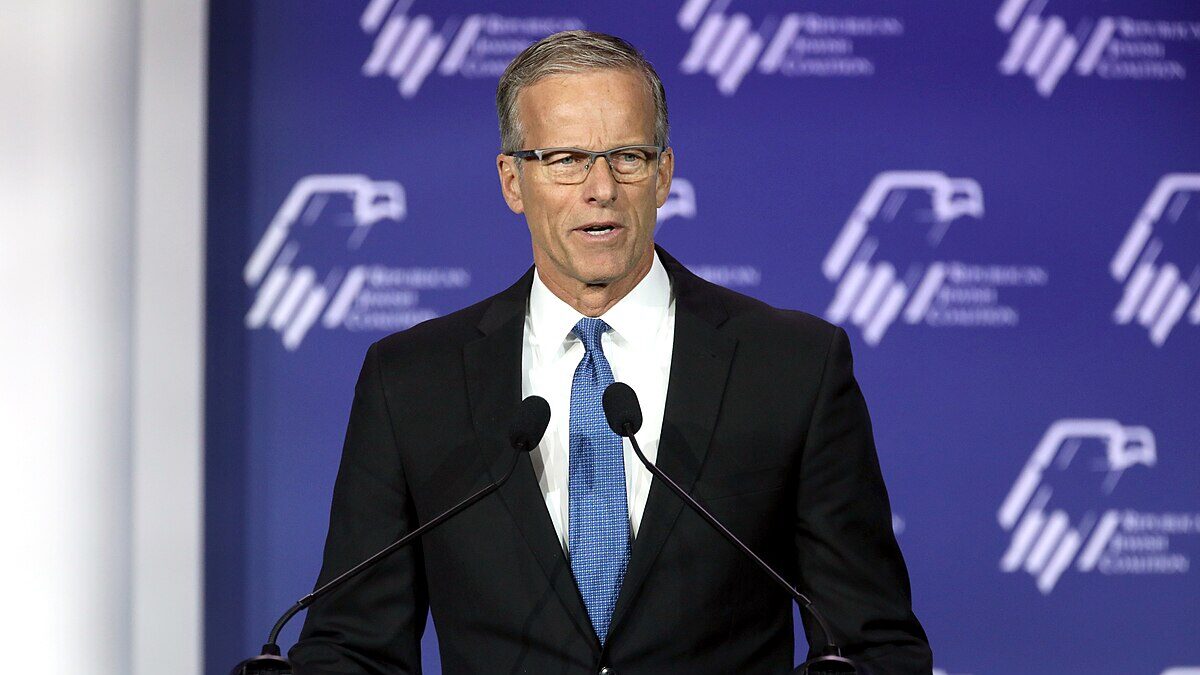
The prudes are running the whorehouse. Our cultural elites are humorless scolds despite being laissez-faire about sex.
For instance, Fox News host Tucker Carlson recently came under fire for saying “naughty things” (his words) on a shock jock radio show many years ago. As a news story, Carlson’s old comments mattered very little. However, this ephemeral outrage provided a case study in the emergence of new cultural standards and an increasingly common type of character among the elite: the libertine prude.
Of course, there is hypocrisy aplenty, as many people who spent decades selling and celebrating offensive fun are now lining up to denounce it. At different points in their lives, many of those scolding Carlson—including the president of the organization leading the boycott campaign—indulged in the same crude humor they are damning him for. Carlson’s remarks were normal enough in a culture that for decades reveled in the unrestrained male id.
Obscene Humor Used to Be Promoted
For most of my life, outrageous humor was popular and lucrative, and those (mostly conservative Christians) who condemned it as obscene and degrading were dismissed as boring Puritans who hated fun. Transgression and irreverence were cool; the president using an intern for pleasure was something Americans needed to be more understanding about, like those sophisticated Europeans.
But this goes beyond hypocrisy. Times really have changed. The rebellion against the old manners and morality has succeeded, but those who hoped to abolish all restraint and repression were deluded. Having demolished the old taboos and manners, today’s cultural leaders are establishing their own standards.
The Carlson kerfuffle provided an example of how cultural elites use manners to secure their own power and stifle dissent. As R.R. Reno recently discussed in an excellent essay in First Things, although manners are essential to civil society, they are easily made into instruments of exclusion.
Manners are necessary to soothe differences of status and soften the exercise of power, thereby providing what Edmund Burke called the “decent drapery” of life. The rituals and norms of political institutions can help keep politics from violence.
But as Reno notes, the new civility has been press-ganged into the service of ideology. Much that was once uncivil, such as public profanity and blasphemy, is now accepted, even among elites. Yet elite enclaves police so-called micro-aggressions with exquisite sensitivity.
Civility Standards Are Not Consistent or Neutral
These standards of civility are not neutral or even-handed, but protect favored factions while excluding and penalizing rival opinions. Some social cruelties are still allowed and encouraged, provided they are targeted at those who have been delegitimized by the new standards. Carlson’s populist turn has made him a class traitor with a target on his back, and digging up these uncouth comments provided an opportunity to try to expel him from civil society and debate (one does not debate racism, sexism, or homophobia; one excludes it).
The changing nature of civility that Reno describes thus brings us back to the emergence of our new sort of character: the libertine prude, who is endlessly approving of sexual indulgence, and endlessly vigilant against anything problematic in speech or thought.
The libertine prude will endorse any amount of promiscuity and accept every kink and fetish—and get the vapors at a joke that “slut shames” a woman or mocks a sexual subculture. The libertine prude will encourage children to explore their sexual identities at ever younger ages (cheering on pre-teen drag queens), yet will be outraged if someone uses the wrong pronoun.
Those on the left who condemned Carlson believe that for adult sexual pleasure, anything goes; do whatever turns you on and gets you off. But while our cultural arbiters will endorse almost anything, sexual indulgence has become serious business, fraught with intersectional pitfalls and privilege.
Look at the climate on college campuses. Sex is ardently pursued but no longer a laughing matter—for our intersectional overlords, the only thing indecent about sodomy would be making it the butt of a joke.
This view rejects both the older moral norms and the broad revolution in morals and manners that was launched against them. Those adhering to it are libertine according to the old morality, but have prudish manners compared to those who overturned the old order. It may seem ridiculous, but this apparent incongruity is not necessarily incoherent or insincere. The adherents of prudish libertinism are in earnest. The woke on Twitter tend to also be available on Tinder.
Sexual license can, at least in theory, coexist with otherwise strict social restrictions and manners; indeed, this development should have been foreseen. Even though the sexual revolution made common cause with the general attack on mores and manners, the establishment of new manners was inevitable. Humans are social beings, and thus manners and standards of civility are unavoidable. The idea that repression and inhibition were all that were standing in the way of human happiness was attractive, but wrong. “If it feels good, do it” needed qualifiers.
Repression was not all that kept humans from happiness, and the rediscovery of the reality of sin (if not the terminology) has been particularly acute with regard to sex. The “anything goes” attitude that overthrew the old regime had casualties. The idea of consent as the standard of sexual morality was a mistake. Consent ensures only that sex is not rape. It allows for all sorts of pressure, cruelty, and objectification. The unscrupulous will seek consent by any means necessary and stretch its bounds to the breaking point. Hence Me Too.
Sexual Indulgence Needs Safe Spaces
So the party is ending at last. If sexual license was to be preserved, restraint needed to be restored around it. Thus, the libertine prude celebrates sexual indulgence as the greatest human good, and seeks to make society a safe space for it.
But this is being done with an impoverished moral vocabulary. The feminist focus on “rape culture” illustrates the inadequacy of consent, alone, as a sexual standard. Having lost the capacity to morally evaluate sexual relations except through the language of consent, all sexual misconduct and exploitation is reduced to rape or factors that enable and encourage it.
This is an insufficient moral framework for describing the complexities of human sexual interactions and condemning sexual transgressions. It does not integrate sexuality into broader ideals of human flourishing. Instead, so long as there is consent, it promotes the fulfillment of desire, and especially sexual desire, as the highest human good.
This approval of self-indulgence necessitates a redefinition of the problems of the human condition. Instead of personal sin, there is the list of “isms” and “phobias” that are socially inculcated. Instead of the virtues, there is intersectional analysis and wokeness, but these only describe and renounce wrongs, they do not offer an understanding of the good or provide the self-control and prudence needed to instantiate it.
Our cultural elites are embracing libertine prudishness in an attempt to rebuild a culture. But they lack a culture to build around. They are trying to establish a sense of sacrilege without anything being sacred. They want us to seek the good of others, while denying any doctrine of the common good or idea of human flourishing beyond self-indulgence. The result is an ideology that is a mashup of occultist Aleister Crowley (“Do as thou wilt”) and Emily Post.









